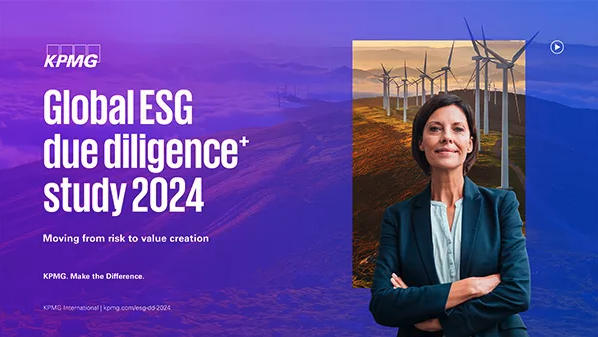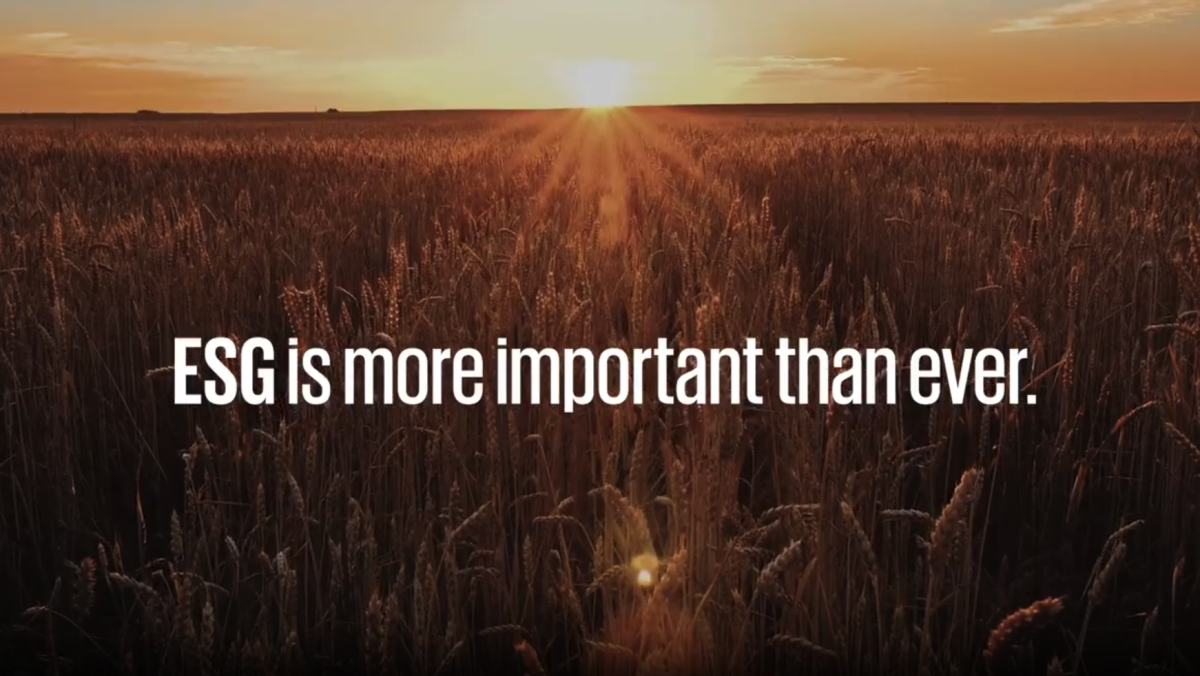Global ESG Due Diligence + Study 2024
Moving from risk to value creation
ESG due diligence rising in priority
ESG due diligence remains a priority for dealmakers. In fact, respondents to the latest Global KPMG due diligence study report a rise in ESG priority in transactions over the last 12 to 18 months, despite challenges.
Many global M&A markets have decelerated in the face of higher interest rates. Geopolitical and economic uncertainty has taken its toll, shifting priorities for many businesses. And, in some countries, there is lively public debate about the merits and justifications to include ESG factors in investment decisions.
Despite these headwinds, the findings from our latest survey of more than 600 active dealmakers from 35 geographies confirms the results of the first-ever international study on ESG due diligence. In 2022, we set out to explore ESG sentiments among dealmakers across the Europe, Middle East and Africa (EMA) region. A follow-up study in the US in 2023 found similar developments, albeit slight less pronounced than in the EMEA region.
ESG in deal is rapidly maturing. The ESG lens is becoming increasingly important to investors and customers. The difficulty lies in the breadth of the topic, making it critical to know how to look at it in a focused manner. That’s why we focus on value not values.
Craig Mennie
Global Head of Transaction Services
KPMG Australia
Global insights at a glance
ESG due diligence continues to rise in importance, despite headwinds.
Dealmakers report an increased importance of ESG due diligence over the past 12 to 18 months, and expect further increases soon. This counters initial expectations of a decline in the importance of ESG factors due to softer M&A activity, economic uncertainty and an ESG backlash in some countries.
Leading investors tie ESG to the investment thesis and drive financial value from it.
They do this by combining a deep understanding of the commercial, operational, and financial risks and opportunities triggered by evolving ESG regulations and stakeholder expectations with a disciplined focus on financial returns during the holding period. They use tools like comprehensive baselining, integrated 100- day action plans, and a systemic scan for sources of financing to improve their investee’s performance. Such performance improvements can materialize in the form of increasing revenues, decreasing costs, or de-risking of an investment, across various environmental and social and governance areas — at this moment, typically in connection with themes such as decarbonization, recycling and circularity and supply chain management.
Challenges in conducting ESG due diligence persist, but solutions are emerging.
Investors struggle with selecting a meaningful, yet actionable scope with receiving quality data from target companies, and with quantifying potential findings. However, for each of these challenges, there are emerging solutions. On scoping, it is becoming increasingly clear which topics should indeed be part of an ESG due diligence workstream, with the focus moving from values to value. On data quality, we see a great opportunity for sellers and sell-side advisors to drive value from divestments by commissioning higher-quality ESG vendor documentation. And on quantification, the synergies between ESG due diligence teams and commercial and operational due diligence teams are becoming clearer.



